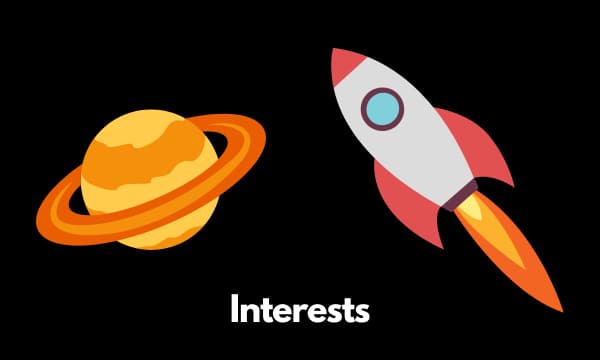Career paths. My own adventure taught me that differences in background, education, and personal choices all play a part in creating unique professional trajectories. In this article, I outline 10 reasons why your career path may be different from others. I share personal insights and practical examples to illustrate how various factors shape our careers in distinct ways.

1. Life Experiences and Early Influences
The experiences we go through early in life can shape our career paths in many ways. For me, a childhood filled with diverse opportunities led to a flexible outlook. Whether it was family expectations or the culture in which we were raised, these early influences often set the tone for our future endeavors. Some people grow up in environments that nurture creativity and innovative thinking, while others are raised in more structured settings that prize tradition and steady progress.
This diversity in early experiences means that the skills you value and the risks you are willing to take can differ greatly from those of someone else. Reflecting on your formative years can help you understand your professional choices better, and it may guide decisions about further education or major career changes later on.
Additional reflection on your early influences can uncover hidden strengths and preferences. By checking out memories from childhood and conversations with family members, you can start to see patterns that have subtly influenced your decision-making process. Such insights often point to personal talents and interests that set the stage for a career defined by your own unique perspective.
Practical Takeaways:
- Reflect on your early influences and family values.
- Understand how these experiences may have steered your interests.
- Consider how your background might create unique strengths in your career.
Understanding your background is a very important first step to recognizing why your career journey might not mirror someone else’s. Taking the time to explore these roots can give you a sense of direction as you map out your future.
2. Educational Choices and Access
The level of education you receive and the types of institutions you attend greatly impact your career trajectory. I have experienced firsthand how schools with varying resources and teaching styles can lead to very different career outcomes. One person’s education may emphasize theoretical understanding and academic research, while another’s might focus on practical skills and hands-on learning.
Differences in educational background lead to variations in networking opportunities, skill development, and even confidence when entering the workforce. For example, some fields require specific degrees or certifications, and those without access to these may choose alternative paths that align more closely with their immediate skills and opportunities.
Taking advantage of every learning opportunity plays a crucial role in molding your career. Whether via formal education or self-guided learning, each experience can step up your ability to solve problems and contribute meaningfully in your field. Consider online courses, workshops, or mentorship programs to fill any gaps in your knowledge.
Practical Takeaways:
- Assess the impact of your educational background on your career choices.
- Look for opportunities to supplement any gaps in your knowledge.
- Appreciate that hands-on experience is as valuable as formal education.
When you realize that your education has shaped your unique professional profile, you may begin to see the benefits it offers, while also identifying areas where you can smooth the way for further growth.

3. Personal Values and Priorities
What we value in our personal lives often has a strong bearing on our career decisions. I have always found that core values such as integrity, creativity, and a commitment to service guide my professional choices. Some people prioritize a balanced lifestyle or community involvement, while others may focus primarily on financial gain and competitive success.
The different value systems manifest in varied professional ways. One person may choose a job that offers creative freedom, even at the cost of a lower salary, while another might opt for a more lucrative role despite sacrificing some personal rewards. Recognizing your priorities early on is very important, as it lays the foundation for making decisions that lead to a satisfying career.
It is helpful to periodically check in with yourself to ensure that your work aligns with what you truly value. Over time, as circumstances change, your personal values might evolve and shift, creating new opportunities or calling for a change of direction in your career strategy.
Practical Takeaways:
- Identify your core values and consider how they align with your work.
- Seek out career opportunities that reflect your priorities.
- Recognize that differing priorities can lead to very different career outcomes.
Knowing what truly matters to you can provide clarity and ensure that your professional life feels aligned with your personal beliefs.
4. Risk Tolerance and Comfort with Change
Risk taking plays a big role in career decisions. I learned early in my professional life that a willingness to take calculated risks can lead to unexpected opportunities and next-level cool innovations. Some are naturally more conservative, preferring stability and predictable outcomes, while others are ready to jump into new challenges.
My own comfort with risk has often meant being open to switching fields and trying out new challenges, even at the risk of temporary setbacks. I also have colleagues who prefer to build their expertise in a single industry over decades, a choice that comes with its own distinct benefits. Both options have their upsides and trade-offs.
It is really important to understand your own risk tolerance. For example, if you tend to get nervous with uncertainty, you might be more at ease with secure career paths. In contrast, if you thrive in dynamic environments, taking a bold approach could pay off with higher rewards in the long term.
Practical Takeaways:
- Assess your comfort level with risk in professional settings.
- Balance risk with the potential for long-term rewards when planning your career.
- Understand that opting for a cautious way can be as effective as a bold strategy.
Getting your personal preference right regarding risk can help you better pinpoint the career opportunities that resonate with your style and objectives.
5. Recognizing and Seizing Opportunities
Grabbing the right opportunities at the right time is another key factor in why career paths differ. I have found that recognizing opportunities when they reveal themselves requires both timing and a particular mindset. Whether it is a sudden project opening, a job offer from an unexpected quarter, or a chance to learn a new skill, each opportunity can mark a turning point in your professional progress.
Not everyone shares the same level of readiness for such moments. While one person might see a career as a string of gaps punctuated by occasional openings, another may plan their steps meticulously, turning every possibility into progress. The ability to spot and act on these chances can have a lasting impact on a career.
It is also important to note that seizing opportunities often requires preparation. Staying informed about trends, building a robust network, and being well-versed in your field can all help ensure you’re ready to tap into new prospects when they come calling.
Practical Takeaways:
- Develop awareness by networking and continuous learning.
- Keep track of opportunities and decisions as a reference for your growth.
- Adopt a proactive mindset that sees challenges as openings to advance.
Learning to recognize the right moment helps you focus on opportunities that align with your long-term goals, ultimately building resilience and self-confidence over the years.
6. Personal Interests

Your personal interests can play a critical role in shaping your career path. I have found that pursuing what you really love might mean straying from conventional routes and instead choosing a niche that is uniquely yours. Whether your passion lies in technology, art, literature, or another field entirely, genuine interest acts as fuel for persistence and creativity.
People who follow their passions often bring fresh insights and originality to their work. Even if the beginning of the path seems uncertain, maintaining focus on your interests can lead to expertise and fulfillment over time. In contrast, those who choose careers only based on external expectations might eventually find their work less satisfying or engaging.
It can be very beneficial to set aside time for personal projects and side endeavors that reflect your interests. Over time, these pursuits might even evolve into main career activities, providing you with a deeper sense of professional satisfaction and authenticity.
Practical Takeaways:
- Reflect on your interests and examine how they can shape your professional objectives.
- Search for job roles that allow you to weave your passions into your work.
- Consider how hobbies and other extracurricular activities can complement and enrich your career.
Nurturing your passions not only fosters personal growth but also creates opportunities to stand out in your field, thereby giving your career a personal stamp that is hard to replicate.
7. Networking and Mentorship
The role of mentors and professional networks often determines the course of a career. I have experienced how guidance from experienced professionals can open doors that might otherwise remain closed. Whether it was a mentor who encouraged me to take on a challenging project or advice from a seasoned colleague, networking has been a key ingredient in my career development.
Unfortunately, not everyone has equal access to influential mentors or networks. While some are lucky enough to connect with leaders early on, others build these relationships gradually and must work harder to create their own opportunities. These differences in access can translate into varied levels of professional growth, new opportunity channels, and overall career stability.
Taking steps to develop your network is very important. Consider attending industry meetups, joining online forums, and actively asking for guidance from those with more experience. These relationships can sometimes be the deciding factor in moving your career forward.
Practical Takeaways:
- Invest time in building and nurturing a professional network.
- Seek out mentorship opportunities both within your organization and in your broader professional community.
- Contribute to your network by sharing your own experiences and insights.
Good mentors not only share advice but also help you see possibilities you might not have considered on your own, effectively broadening your perspective and influencing your career decisions in meaningful ways.
8. Adaptability and Lifelong Learning
Adapting to new challenges and committing to lifelong learning are major factors in evolving career paths. In my experience, the ability to acquire new skills quickly and adjust to rapidly evolving technologies has been instrumental in keeping my career both dynamic and resilient. With industries shifting at a fast pace, staying current isn’t just beneficial—it’s necessary for ongoing success.
Some professionals invest in continual training and certifications, whereas others become comfortable once they secure a stable role. This willingness or reluctance to pursue ongoing education eventually sets different paths apart in terms of career growth and longevity. Loving an all-in-one method to learning can leave you better prepared for future challenges and breakthroughs.
Regularly setting aside time to read industry news, attend workshops, or even enroll in online classes can make a huge difference in maintaining your competitive edge. Such proactive steps not only speed things up when opportunities arise, but they also enrich your abilities in unexpected ways over the long haul.
Practical Takeaways:
- Commit to learning something new on a regular basis.
- Attend relevant workshops, seminars, or online courses.
- Remain open to feedback and make adjustments to your skills as necessary.
Investing in your professional development not only increases your value in your current role but also sets the stage for future opportunities, effectively laying the groundwork for a robust career.
This hidden knowledge used by the elites will let you generate wealth and prosperity

9. Work-Life Balance and Personal Commitments
Striking a balance between work and personal life is yet another factor that influences our career paths. I have experienced moments when prioritizing family or personal health redirected my focus from climbing the corporate ladder. Although this choice might result in fewer promotions in the short term, it often leads to a more balanced and sustainable life over the long haul.
Personal commitments such as raising a family, caring for a loved one, or pursuing hobbies tend to require adjustments to one’s professional ambitions. Some professionals seek out companies that support flexible working hours, while others reconfigure their career goals to maintain stability. Dealing with a well-thought-out work-life creation is really important as it typically results in higher overall satisfaction and a longer, more fulfilling career.
It is also essential to keep in mind that work-life balance isn’t a one-size-fits-all formula. By periodically evaluating your own priorities and stress levels, you can adjust your workload and commitments to maintain the equilibrium that works best for you. This self-awareness ultimately contributes to maintaining both mental and physical well-being over time.
Practical Takeaways:
- Identify what balance means for you and strive to achieve it in your career.
- Seek out job roles that support a healthy work-life dynamic.
- Set clear personal boundaries to safeguard your time and mental health.
Creating a good balance between professional ambitions and personal happiness can forge a sustainable path that reignites your enthusiasm throughout the different phases of your career.
10. Resilience and the Ability to Overcome Setbacks
The ability to bounce back from setbacks is a key factor that differentiates career paths. Throughout my career, I have faced challenges that tested my resolve. The way I responded to these difficulties shaped my growth and altered my perspective on success. While some professionals may be disheartened by failures, others use setbacks as crucial learning moments to build greater personal strength.
Resilience is not just an inborn trait; it is a skill that develops over time through experience and reflection. Every setback carries a lesson that, when learned, paves the way for future successes. Developing this strength helps you see challenges from a fresh angle and inspires you to keep pushing forward, even in tough times.
Taking the time to reflect on and learn from setbacks can truly give your career an added boost. By sharing these experiences with peers or mentors, you might also help others to navigate through similar challenges, thereby creating an encouraging loop of mutual growth and support.
Practical Takeaways:
- View setbacks as opportunities to learn and improve.
- Develop tools and strategies that help you remain focused on your goals.
- Seek support and resources when challenges arise.
Recognizing and building resilience in the face of adversity lays a unique foundation for your professional life, one that can help sustain growth and encourage you to press on even when times are tough.
Final Thoughts
Listing the reasons behind diverse career paths shows that many factors contribute to where we end up professionally. My own adventure is just one example of how early life experiences, educational choices, personal values, comfort with risk, seizing opportunities, passionate interests, networking efforts, adaptability, work-life balance, and resilience all play a role.
This insight provides a framework for anyone looking to understand the twists and turns of their own career adventure. Each factor offers a unique benefit, and by taking the time to assess which of these resonate most with you, you can gain clarity and boost your confidence when making decisions about the future.
Every career path is different. The differences we observe aren’t flaws but strengths that reflect our unique stories. I invite you to mull over these 10 reasons and consider how they intersect with your own experiences. Reflect on your personal story, and think about how you can build on your strengths while smoothing out any rough patches along the way.
Thank you for reading about 10 reasons why your career path may be different. I hope that by tracking down these factors, you gain a meaningful glimpse into how you might shape your own professional future with certainty and clarity.
Additional Reflections
It is worth taking extra time to think about the interplay of these factors in your own life. Sometimes, career decisions are not just made in a single moment but are the result of a series of small choices that add up over time. Whether it is deciding to join a new team, taking a workshop, or even changing industries, every decision helps to build the mosaic of your professional life. Reflect on the mentors who have given you guidance, the opportunities you have taken advantage of, and even the failures that taught you hard lessons.
Learning from these experiences can help you make more choices going forward. It is very important to realize that the flexibility and fluidity of career paths are exactly what allow us to grow. Your ability to adapt and your willingness to acquire new skills can open up doors you might have never imagined. By continuously nurturing both your personal and professional interests, you reinforce a cycle of growth that not only benefits you but also inspires those around you.
As you move forward, keep in mind that your career is your own creation. Every setback, every success, and every new experience contributes to a bigger picture that is uniquely yours. Take the time to recalibrate when necessary, and always remain open to learning. This mindset will serve as the cornerstone of a fulfilling and resilient professional life.
In wrapping up, remember that there is no single path to success. Your career is a series of evolving stories, each chapter written by the choices you make. With self-reflection and continual learning, you can always take steps to level up your professional journey. Keep your eyes open, trust in your abilities, and never hesitate to reach out when you need support. Your adventure continues, and every new day brings the chance to redefine what success means for you.
How I "Finally" Make Over $7,000 Monthly Income
"The most valuable thing I've ever done!"
